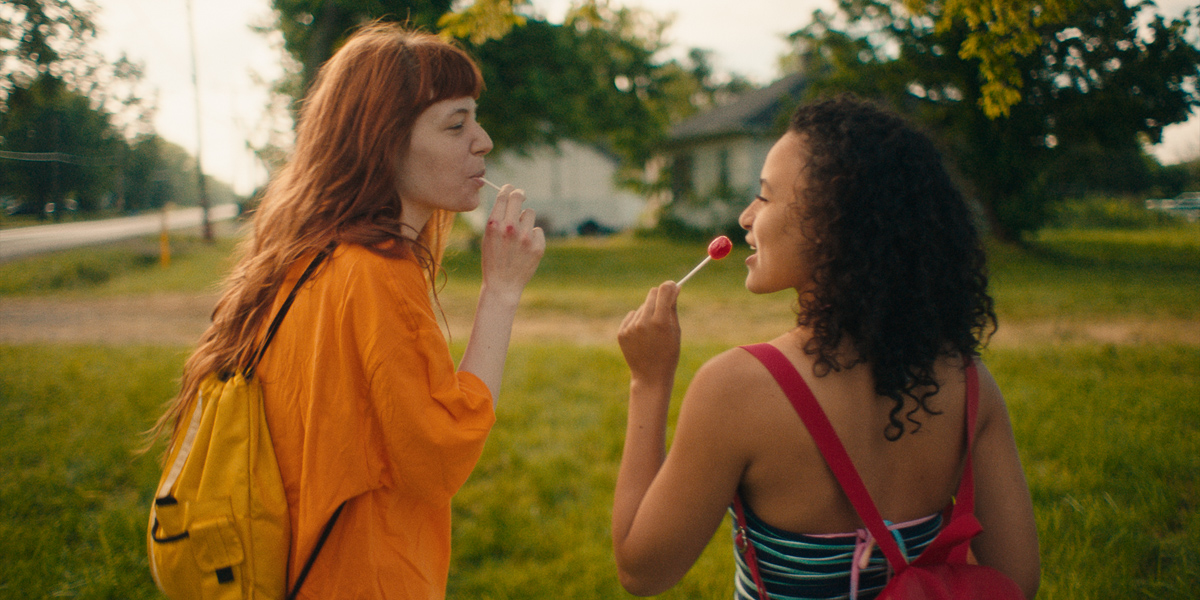Although not wholly original, the horror-comedy presents some unique ideas and follows through with a solid execution full of humanity (and vampiranity)
Humanist Vampire Seeking Consenting Suicidal Person delights audiences with its use of humour and compassionate handling of sensitive subjects (Courtesy of TIFF)
By Caelan Monkman
Would you compromise your morals, even at the expense of alienating yourself from your family — or worse — your own death?
That is the question that Canadian director Ariane Louis-Seize attempts to answer in her debut feature film, the horror-comedy Humanist Vampire Seeking Consenting Suicidal Person.
The film follows Sasha (Sara Montpetit), a “teenage” vampire (she’s 68, which is like 17 in vampire years) who, according to a vampire pediatrician — yes, you read that correctly — possesses a neurological condition which makes her feel compassion towards her human victims, rather than hunger. As a result, Sasha can’t bring herself to kill humans for food, electing instead to drink blood from IV bags as though they were hemoglobin-filled Kool-Aid Jammers.
Out of frustration and a desire to cure her condition, Sasha’s family elects to send her away to live with her cousin Denise (Noémie O’Farrell), hoping that some time away from home will set Sasha straight.
Feeling isolated from her family and unable to express her extremely-vampire-specific dilemma with others, Sasha struggles with how to move forward, ultimately electing to attend a depression support group. There, she meets Paul (Félix-Antoine Bénard), a suicidal teenager who — after putting two and two together about Sasha’s bloodthirsty predicament — offers his life to her as a guilt-free blood sacrifice.
What follows is an unlikely friendship between the two misunderstood minors, who, through each other, discover there’s perhaps more to life than just survival.
The film wears its influences on its sleeve, sharing similarities with black comedies like The End of the F***ing World and The Addams Family while still creating a distinctly original end product. It also doesn’t take itself too seriously, being aware of the absurdities that can arise from the modern-day lives of vampires, à la What We Do In The Shadows.
Additionally, the film has a distinctly Canadian feel to it — and not just because of the multiple utterances of tabarnak and a creative and humorous scene involving poutine. The unique, independent spirit of the film is reminiscent of the (admittedly more abstract) absurdist films of Guy Maddin, or of Jason Reitman’s TIFF-premiering classic, Juno.
Billed as a horror-comedy, the film leans into horror tropes primarily as aesthetic choices, often subverting them for comedic effect. Much of the film is presented matter-of-factly and with a deadpan delivery, allowing the absurdity of the situation to carry the humour.
Despite the film’s humorous subject matter, it also contains its fair share of surprisingly profound moments. Dealing with topics such as depression and suicide, the film approaches these themes head-on, facing them with equal parts compassion and humour, without ever trivializing them.
At times the film could do to sit on these emotional beats a bit longer, but regardless, they still work well and provide some lovely tender moments amongst the deadpan of the rest of the film.
The end result is a film that leans heavily on common horror and coming-of-age tropes but still gives audiences an original end result and has them feeling good as the credits roll.
Humanist Vampire Seeking Consenting Suicidal Person is now available for digital rental and is playing at the TIFF Bell Lightbox on January 27.














